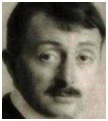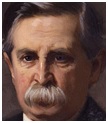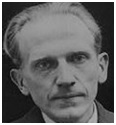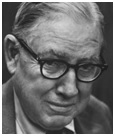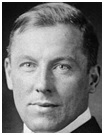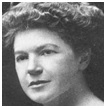|
 |
|
 |
Poetry - Happiness
Emily Dickinson (1830-86), God Gave a
Loaf to Every Bird (1891) The American poet (pictured right) says be happy with what you've got:
God gave a loaf to every bird, But just a crumb to me; I dare not eat it, though I starve, - My poignant luxury To own it, touch it, prove the feat That made the pellet mine,— Too happy in my sparrow chance For ampler coveting. It might be famine all around, I could not miss an ear, Such plenty smiles upon my board, My garner shows so fair. I wonder how the rich may feel, - An Indiaman—an Earl? I deem that I with but a crumb Am sovereign of them all. (complete poem)
Henry Wadsworth Longfellow (1807-82),
Musings The American poet (pictured right) says that:
Thus, thought I, our joys must die, Yes -- the brightest from earth we win: Till each turns away, with a sign, To the lamp that burns brightly within. (last verse)
Thomas Dekker (1572-1632), Sweet
Content The English poet (pictured right) says that rich people may be unhappy and troubled. Poor people are content , because Dekker says later in the poem. “Honest labour bears a lovely face”.
Art thou poor, yet hast thou golden slumbers? O sweet content! Art thou rich, yet is thy mind perplex'd? O punishment! (first 4 lines)
William Wordsworth (1770-1850), The Rainbow
(1802) The English poet (pictured right) celebrates the joy of nature, spurred on by childlike enthusiasm ( “the child is father of the man”, he says in line 7).
My heart leaps up when I behold A rainbow in the sky: So was it when my life began; So is it now I am a man; So be it when I shall grow old, Or let me die! The Child is father of the Man; I could wish my days to be Bound each to each by natural piety. (complete poem)
Wordsworth in The Prelude (1850) describes his happiness as a young man:
Bliss was it in that dawn to be alive, But to be young was very heaven!
William Blake
(1757-1827), Eternity Don’t cling onto a joy, or it will enslave and so destroy you, says Blake (pictured right) in this short poem:
He who binds to himself a joy, Does the winged life destroy; He who kisses the joy as it flies, Lives in Eternity's sun rise. (complete poem)
W. B. Yeats (1856-1939), In The Lake Isle of
Innisfree (1893) The Irish poet (pictured right) extols the virtues of silent reflection on a small island, where:
I hear the water lapping with low sounds by the shore; While I stand on the roadway, or the pavements grey I hear it in the deep heart’s core. (last three lines).
William Henry Davies (1871-1940), Leisure
(1911) The Welsh poet (pictured right) advises us to give more of our time to leisure, reflection and the appreciation of nature’s beauty.
What is this life if, full of care, We have no time to stand and stare. (first two lines)
Thomas Gray (1716-71), Elegy Written in a Country Churchyard (1751)
Far from the madding crowd's ignoble strife, Their sober wishes never learn'd to stray; Along the cool sequester'd vale of life They kept the noiseless tenor of their way. (19th verse)
Henry Wadsworth Longfellow (1807-82),The Rainy Day (1842)
Into each life some rain must fall, Some days must be dark and dreary. (last two lines)
John Masefield (1878-1967), Laugh and Be Merry (1910) The English poet (pictured right) says always be positive and cheerful, despite life’s difficulties (see Longfellow above);
Laugh and be merry, remember, better the world with a song, Better the world with a blow in the teeth of a wrong. Laugh, for the time is brief, a thread the length of a span. Laugh and be proud to belong to the old proud pageant of man. (first verse)
Henry Austin Dobson (1840-1921), Fame is a Food that Dead Men
Eat Friends are more important than fame according to the English poet (pictured right): Fame is a food that dead men eat,- I have no stomach for such meat. In little light and narrow room, They eat it in the silent tomb, With no kind voice of comrade near To bid the banquet be of cheer. (first verse)
A.A. Milne (1882-1956), The House at Pooh Corner (1928) In Pooh’s song., the English writer (pictured right) says that happiness is doing nothing in particular I could spend a happy morning Seeing Roo, I could spend a happy morning Being Pooh, For it doesn’t seem to matter, If I don’t get any fatter (And I don’t get any fatter), What I do.
Ogden Nash (1902-71), Reflections on
Ice-Breaking (1931) The American poet (pictured right) comments whimsically on the delights of alcohol: Candy Is dandy But liquor Is quicker. (complete poem)
William Shakespeare (1564-1616), Sonnet
29 Shakespeare (pictured right) describes the importance of love to happiness:
When, in disgrace with fortune and men's eyes, I all alone beweep my outcast state And trouble deaf heaven with my bootless cries And look upon myself and curse my fate, Wishing me like to one more rich in hope, Featured like him, like him with friends possess'd, Desiring this man's art and that man's scope, With what I most enjoy contented least; Yet in these thoughts myself almost despising, Haply I think on thee, and then my state, Like to the lark at break of day arising From sullen earth, sings hymns at heaven's gate; For thy sweet love remember'd such wealth brings That then I scorn to change my state with kings. (complete poem)
Robert Service (1874-1958), My Inner Life
(1955) The Canadian poet (pictured right) emphasizes the importance of inner happiness and being true to yourself:
Oh you who have an inner life Beyond this dismal day With wars and evil rumours rife, Go blessedly your way. Your refuge hold inviolate; Unto yourself be true, And shield serene from sordid fate The Real You. (last verse)
In the Joy of Little Things (1921), Service says that little things make you happy:
So give to me, I only beg, A little roof to call my own, A little cider in the keg, A little meat upon the bone; A little garden by the sea, A little boat that dips and swings ... Take wealth, take fame, but leave to me, O Lord of Life, just Little Things. (last verse)
In another poem, Contentment (1956), Service emphasizes the importance of freedom:
To no man I bow the head, None may master me; I will eat my crust of bread Lauding liberty; And upon my truckle bed Glory to be free.
Ella Wheeler Wilcox (1850-1919), Love Thyself
Last The American poet (pictured right) describes the joy that comes from putting others first:
Love thyself last. Look near, behold thy duty To those who walk beside thee down life’s road; Make glad their days by little acts of beauty, And help them bear the burden of earth’s load.
Love thyself last, and thou shall grow in spirit To see, to hear, to know, and understand. The message of the stars, lo, thou shall hear it, And all God’s joys shall be at thy command. (first and last verses) |
|
|
||
|
|
|
||
|
||
| Copyright © wisdomtowin.com All Rights Reserved | ||
|

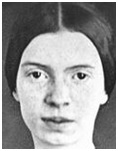
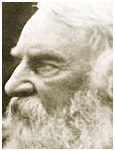

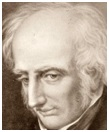

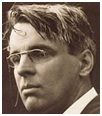
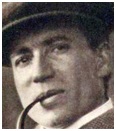
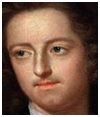 The English poet (pictured right), recommends a quiet life:
The English poet (pictured right), recommends a quiet life: